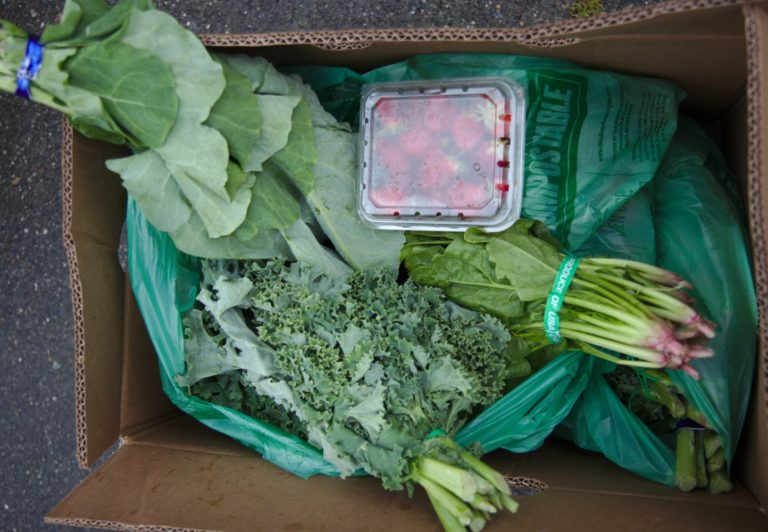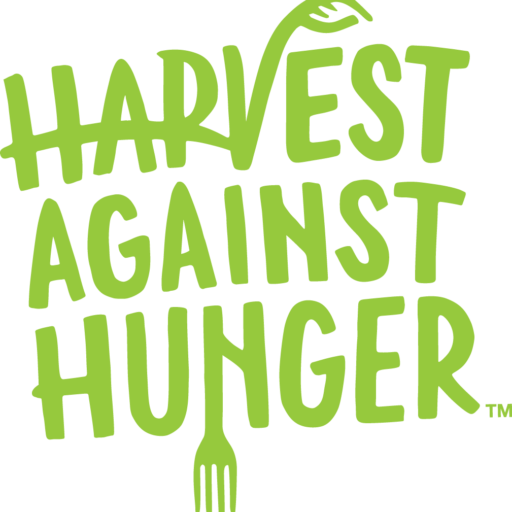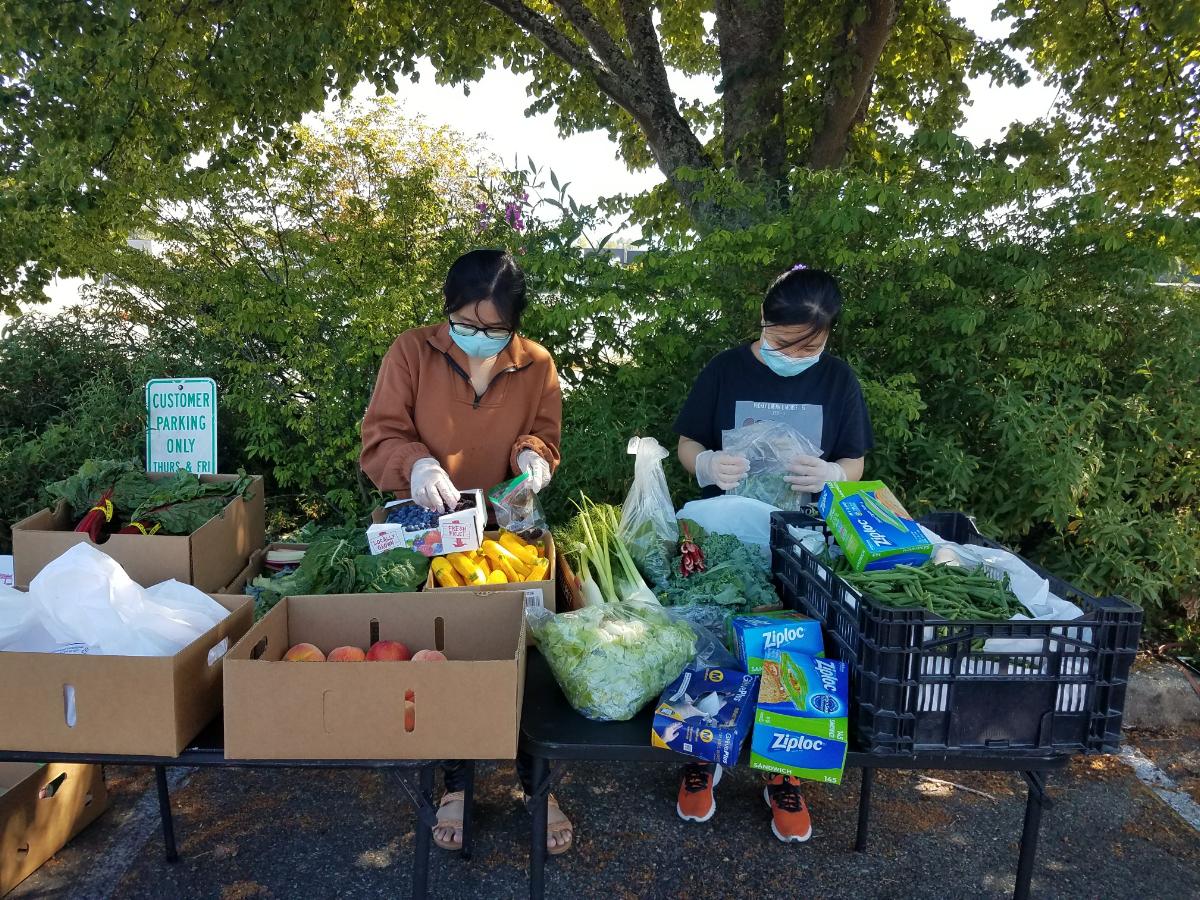
Food Access through Cross-Pollination of Connections
19 Aug 2020, by Admin in Harvest Blog, Harvest VISTA, King County Farmers Share, Harvest Against HungerMaddie Price serves as a Harvest VISTA at Harvest Against Hunger (HAH) in Seattle, WA, coordinating the King County Farmers Share (KCFS) program, which is an expansion of the statewide Farm to Food Pantry program that HAH manages with the Washington State Department of Agriculture. Through a 2-year Regional Food System Grant from the King Conservation District, KCFS provides funding for hunger relief agencies in King County, WA, to purchase fruit and vegetables from small-scale farms also in King County to expand access to fresh whole produce for local food insecure populations. KCFS received an expansion and extension of the grant funding into 2021 to alleviate the impacts of COVID-19 on local small farms and emergency food providers.
While most food banks faced the decision of either continuing modified food distribution or closing their facilities due to the risks of COVID-19, the South Seattle College food pantry (SSC), a 2nd-year King County Farmers Share participant, is juggling both! While the summer term continued remotely, the pantry recognized that healthy food access remained essential to students’ studies, as nearly 50% of the student body reported food insecurity even before the campus’s closing in March. VISTA Maddie had to use creative thinking and networking to explore alternative food distribution models to help SSC continue to provide locally grown produce for students through KCFS.
First, Maddie reached out to Sound Sustainable Farms, which had connected to Harvest Against Hunger in the spring, as one of many farms that sought to pivot into selling to the hunger relief system after losing a significant market to local restaurants. They informed Maddie and SSC that they started selling into Tilth Alliance’s Good Food Bags program, which creates individually packed home delivery produce bags for low-income populations across south Seattle, sourced from organic farms throughout the region. With group orders of Good Food Bags, SSC used KCFS funding toward several King County offerings–ranging from bok choy from Oxbow Farm to strawberries from Sound Sustainable Farms themselves!
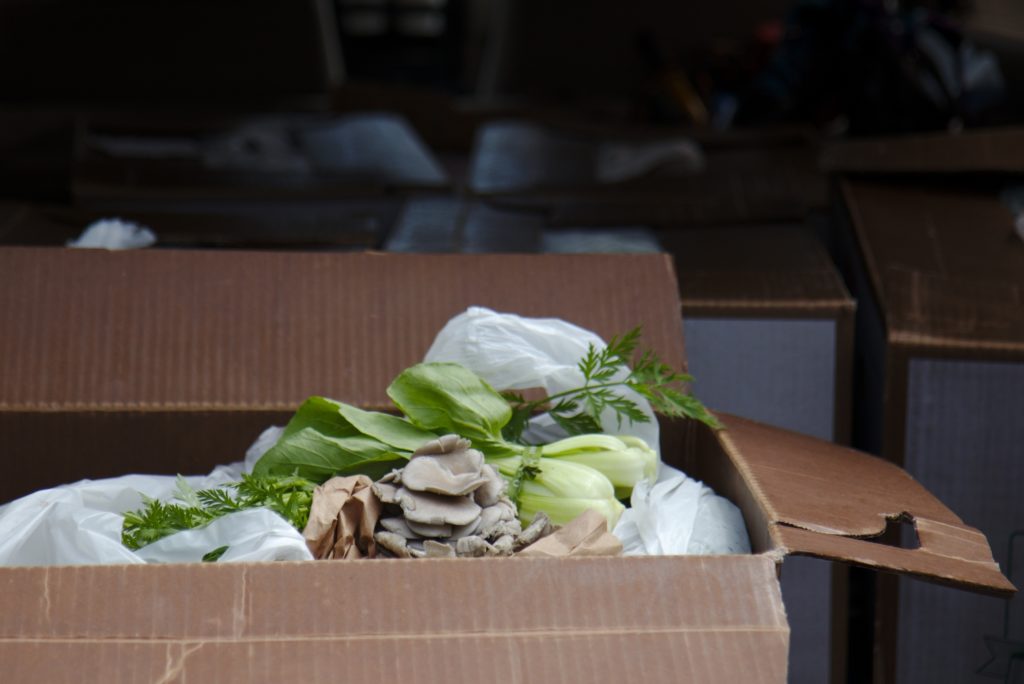
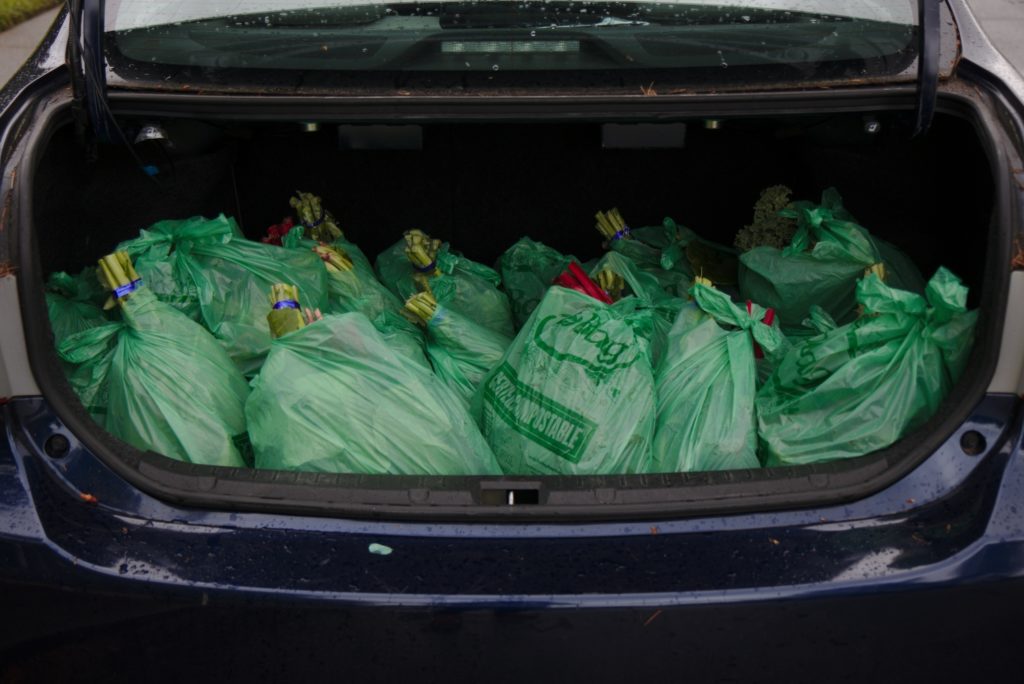
After a few rounds of Good Food Bags and considering another option to provide food distribution on weekends, SSC looked to the nearby West Seattle Farmers Market on Sundays to trial drive-thru pick-up of pre-packed grocery bags, which many food banks have pivoted to using to limit contact with clients.
Through Harvest Against Hunger’s connection supporting the Association of Gleaning Organizations, Maddie gathered resources for farmers market gleaning to equip SSC and their bag packing volunteers. With this gleaning style, SSC would seek donations of food unsold at the market that day, and their KCFS funding allowed them to make bulk orders ahead of time and also offer compensation for unsold produce from King County farms.
On their first market glean, SSC landed a deal from Tonnemaker Orchards on seconds apricots — a little “ugly”, but it’s that fresh, sweet inside that counts! But what about veggies? While Seattle farmers markets have cut back on vendors to avoid overcrowding, Maddie realized that Lee Lor Garden–a small family farm out of Carnation, WA, that she was already working with through the new PCC Markets/Neighborhood Farmers Markets farm-to-food bank partnership–would be another fitting connection at the West Seattle market for SSC.
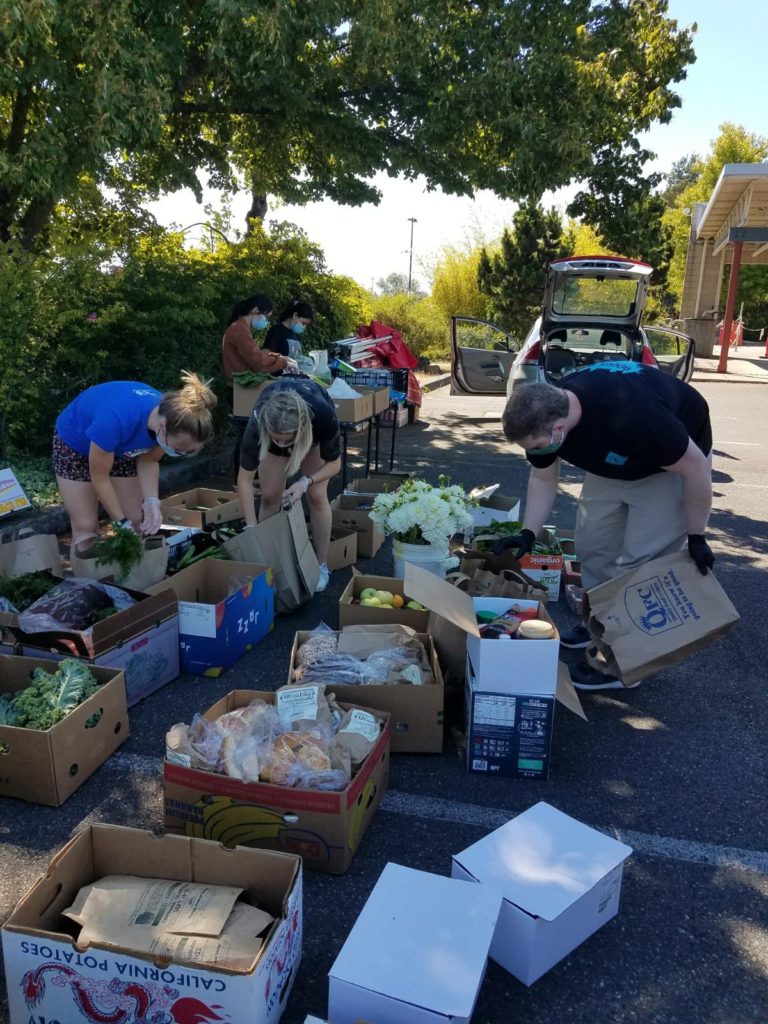
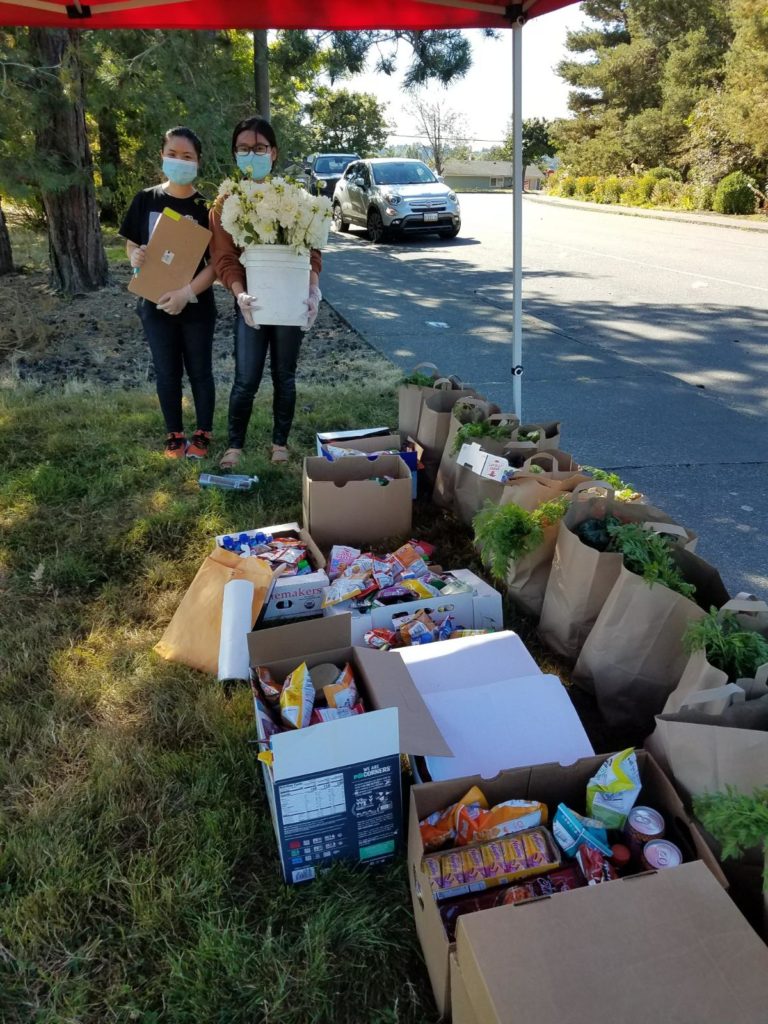
From Lee Lor, SSC has used their KCFS funding to purchase zucchini, chard, kale, green beans, and dill. One market day, Lee Lor–also being a flower farm like many other of the area’s Hmong farms–even offered a donation of dahlias!
“It just warmed the hearts of our students as we gave them a small bunch of flowers as they first checked in, prior to getting their produce bags!!”
While it’s confirmed that the campus will continue remote operations through the upcoming fall term, through navigating the ever-changing hunger relief landscape, VISTA Maddie and SSC now have a breadth of food access resources and connections at their disposal–most recently working directly with Farmstand Local Foods, a local food aggregator and distributor that’s been involved in delivering to other KCFS partners and the Good Food Bags already–to supplement the more variable farmers market gleaning. After all, as Harvest Against Hunger has seen in its years of experience coordinating farm-to-food bank networks across King County and Washington state, diversity is key to adaptability!
